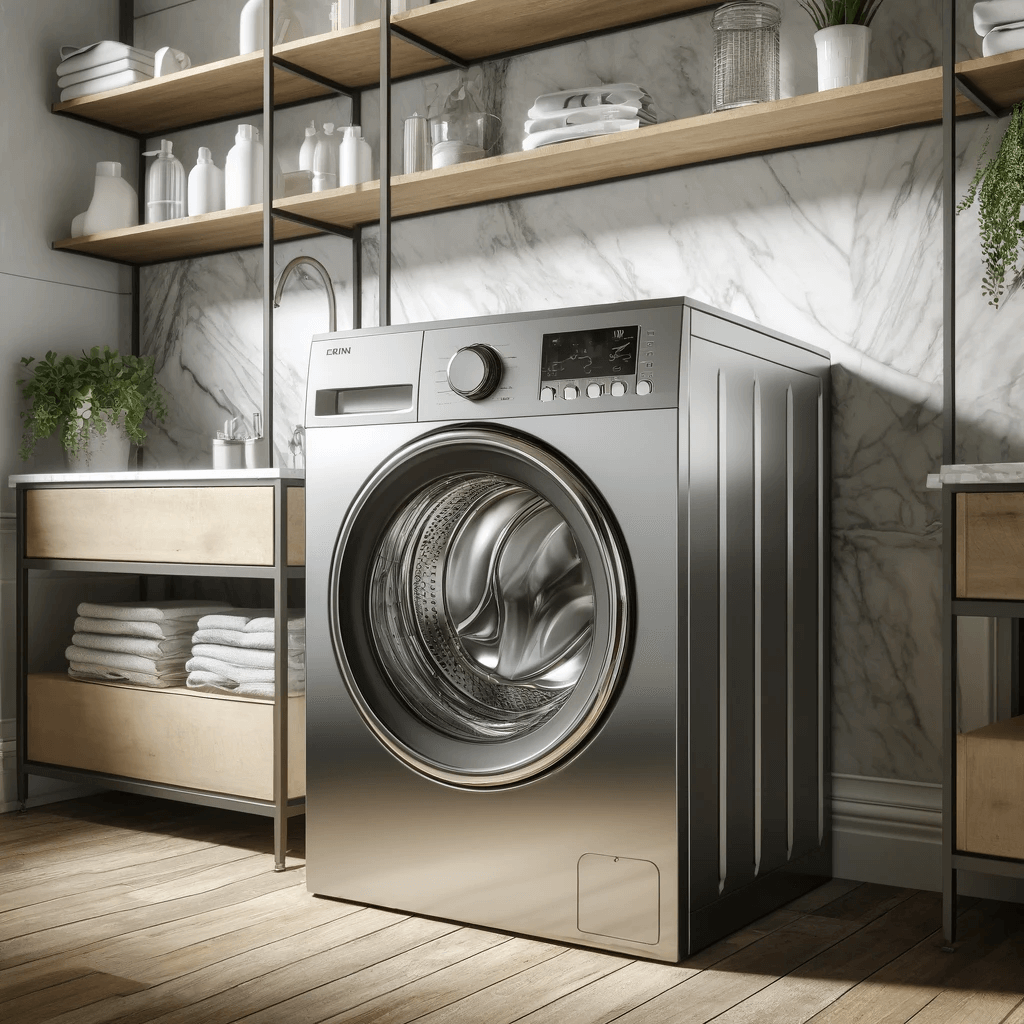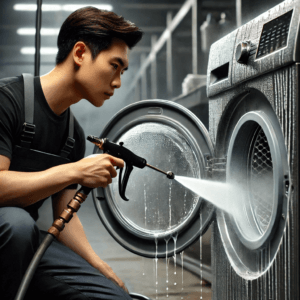Buying a washing machine can be a daunting task. With so many options, features, and technologies available, it’s easy to feel overwhelmed. But don’t worry, we are here to help you navigate through this process and find the perfect washing machine for your home. In this comprehensive guide, we’ll cover everything you need to know about washing machines, from understanding different types and features to considering your specific needs and budget.
- Types of Washing Machine Available
- Key Features to Consider
- Determining Your Needs
- Popular Washing Machine Brands
- Maintenance and Care
- Conclusion
1. Types of Washing Machine available
The first decision you’ll need to make is whether to go for a top-load, a front-load washing machine or a washer dryer combo. Each has its advantages and disadvantages.
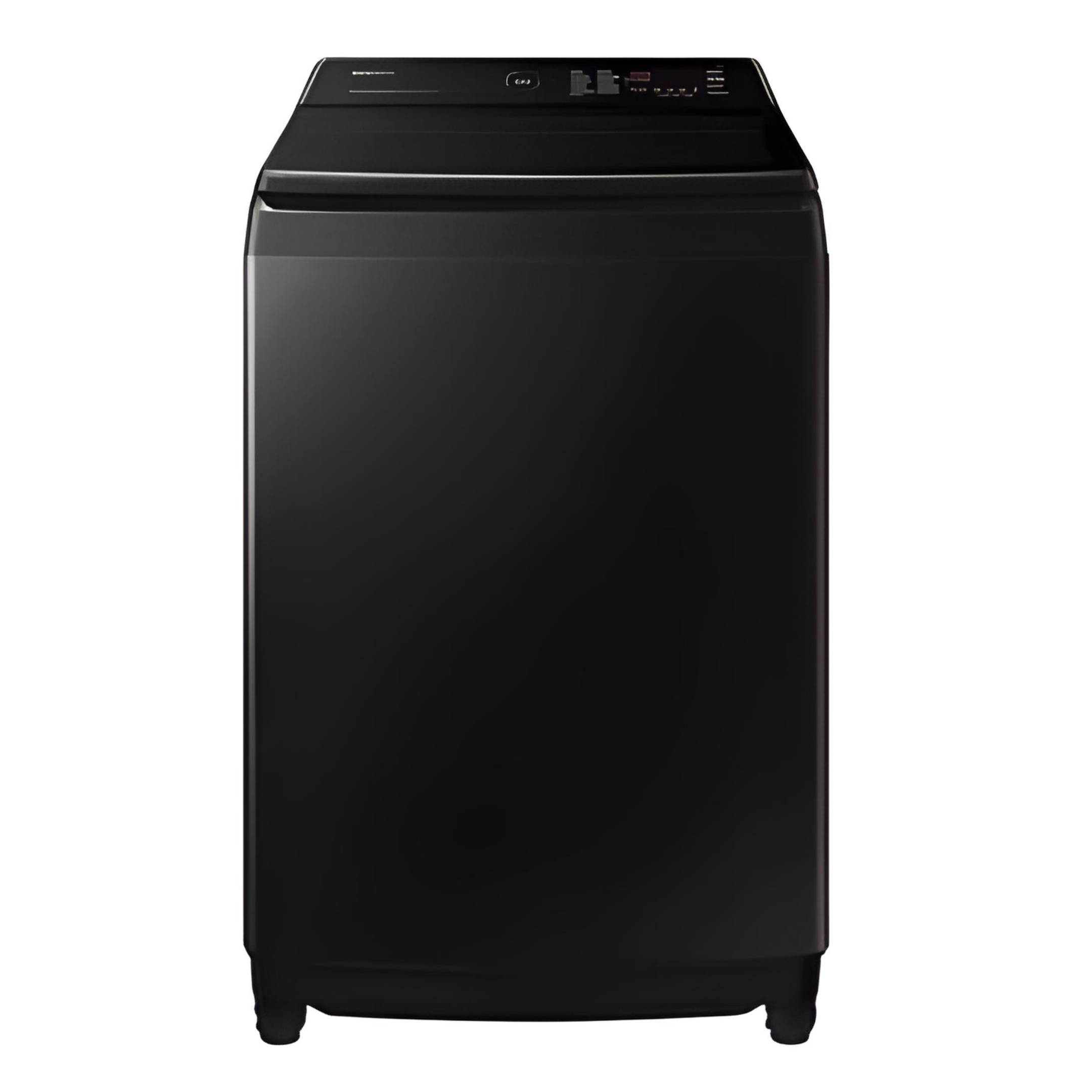
Top-Load Washing Machines
Top-load washing machines are traditional and more common in many households. Here are some reasons why you might choose a top-load washer:
Pros:
- Ease of Use: You don’t have to bend down to load and unload laundry, which is great if you have back issues.
- Faster Wash Cycles: Top-loaders typically have shorter wash cycles compared to front-loaders.
- Lower Initial Cost: They are usually cheaper to purchase than front-load washers.
Cons:
- Water Efficiency: Top-load washers generally use more water.
- Energy Efficiency: They can be less energy-efficient compared to front-load models.
- Gentleness on Clothes: The agitator in top-loaders can be rougher on clothes.
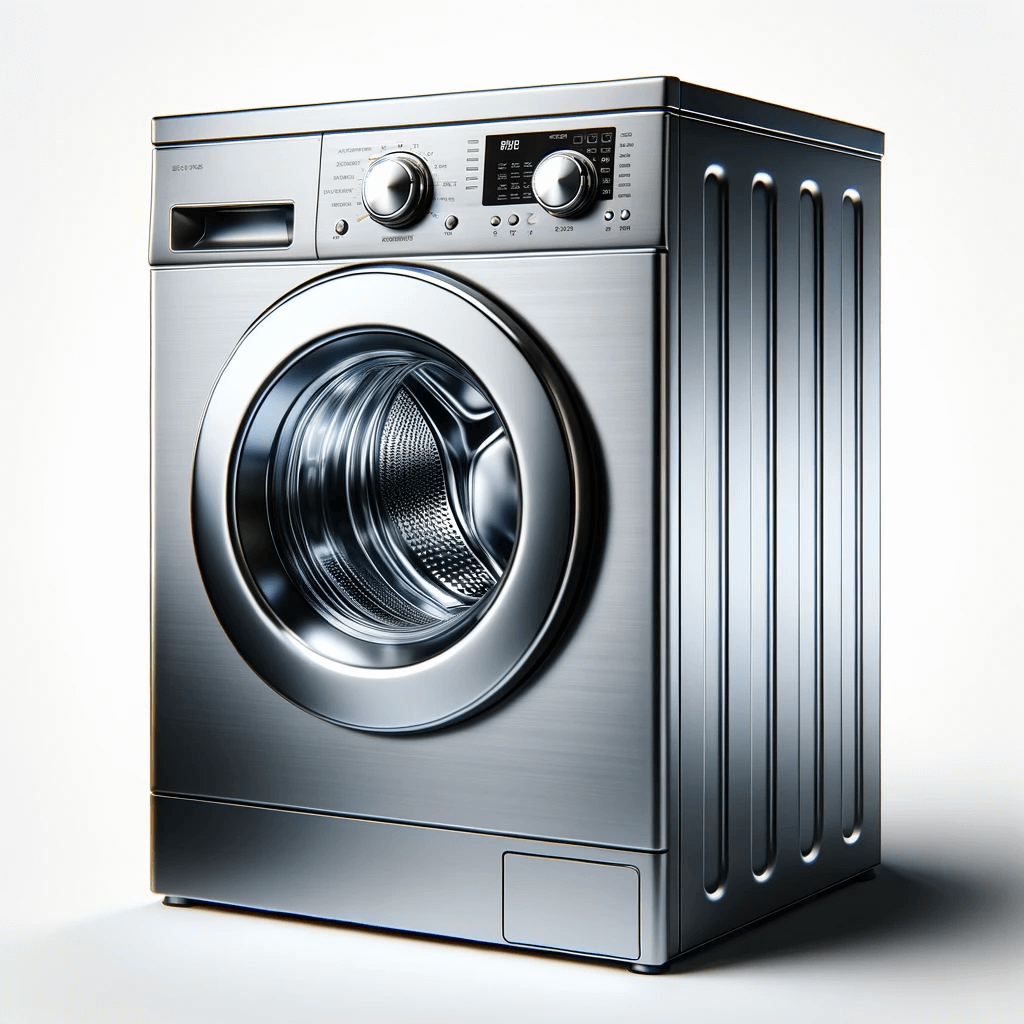
Front-Load Washing Machines
Front-load washing machines are known for their efficiency and effectiveness. Here are the benefits:
Pros:
- Water and Energy Efficiency: Front-loaders use less water and energy, which can save you money in the long run.
- Better Cleaning Performance: They tend to be gentler on clothes and offer superior cleaning performance.
- Space-Saving: You can stack a dryer on top of a front-load washer, which is great for small spaces.
Cons:
- Higher Initial Cost: They tend to be more expensive upfront.
- Longer Wash Cycles: The wash cycles can take longer than those of top-load machines.
- Maintenance: They require more maintenance to prevent mold and mildew buildup around the door seal.
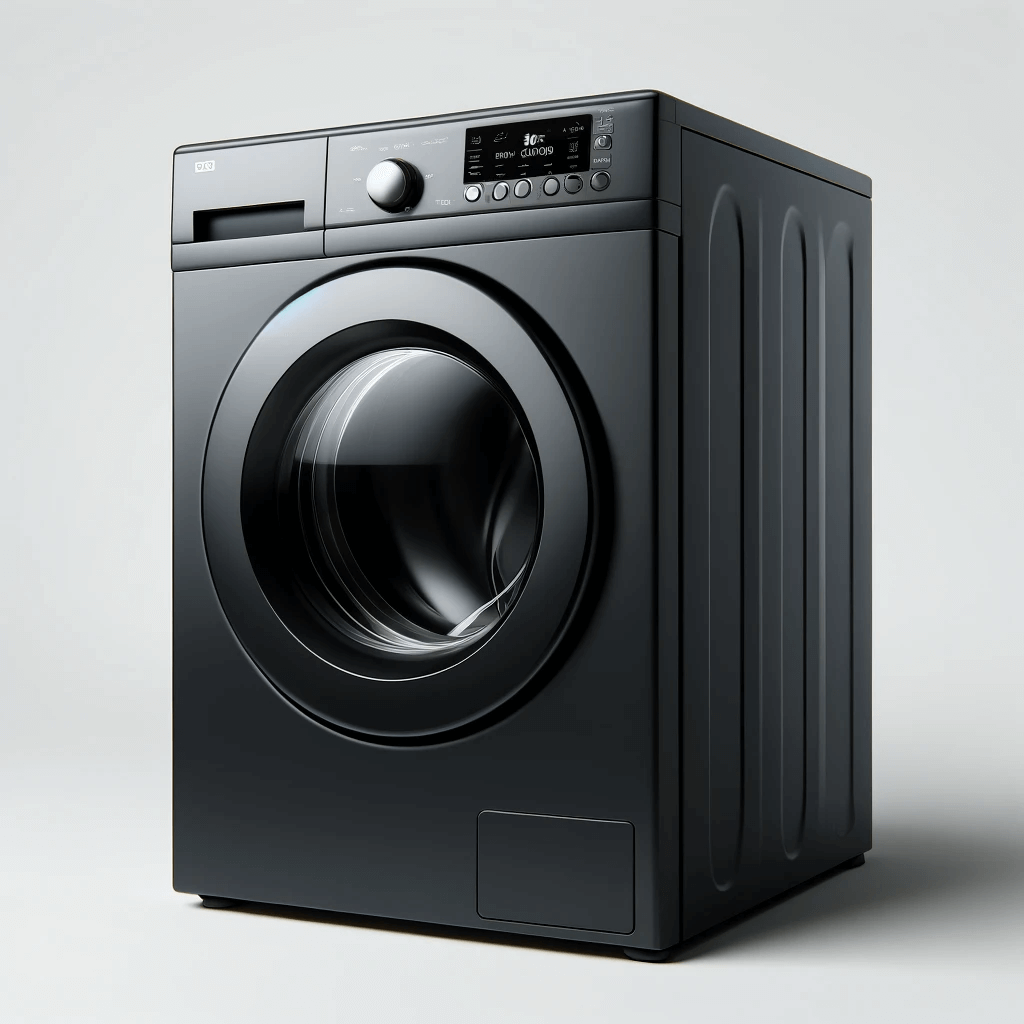
Washer Dryer Combo
A washer dryer combo combines a washing machine and a dryer in one unit, offering convenience and space-saving benefits.
Pros:
- Space-Saving: Ideal for small homes or apartments where space is limited.
- Convenience: No need to transfer clothes from a washer to a separate dryer; it washes and dries in one cycle.
- Energy Efficiency: Many models are designed to be energy-efficient, using less water and electricity.
Cons:
- Smaller Capacity: Typically, the drying capacity is smaller than the washing capacity, so you may need to remove some items for optimal drying.
- Longer Cycle Times: Combined wash and dry cycles can take longer than using separate machines.
- Higher Initial Cost: Washer dryer combos can be more expensive than individual units.
2. Key Features to Consider
When shopping for a washing machine, there are several key features you should consider to ensure you get the best one for your needs.
Capacity
Capacity is one of the most important factors to consider. Washing machines come in various sizes, typically measured in kilograms. A larger capacity means you can wash more clothes in one go, which is ideal for larger families.
| Washing Machine Sizes | Suitable for (Family size) |
| Small (6-7 kg) | Family of 2-3 members |
| Medium (7-9 kg) | Family of 4-6 members |
| Large (9+ kg) | Family of 6+ members |
Spin Speed
Spin speed, measured in revolutions per minute (RPM), affects how dry your clothes come out of the washer. Higher spin speeds extract more water, reducing drying time.
- 800-1000 RPM: Basic spin speed, suitable for most laundry needs.
- 1000-1200 RPM: Better water extraction, good for heavier items like towels and jeans.
- 1400+ RPM: Excellent water extraction, ideal for quick drying.
Wash Programs
Modern washing machines come with a variety of wash programs tailored to different types of fabrics and stains. Common programs include:
- Quick Wash: For lightly soiled clothes, typically takes around 15-30 minutes.
- Delicate: For fragile fabrics like silk and lace.
- Heavy Duty: For heavily soiled items like work clothes or sports uniforms.
- Wool: Gentle wash for woolen garments.
- Hand Wash: Mimics the gentle action of hand washing.
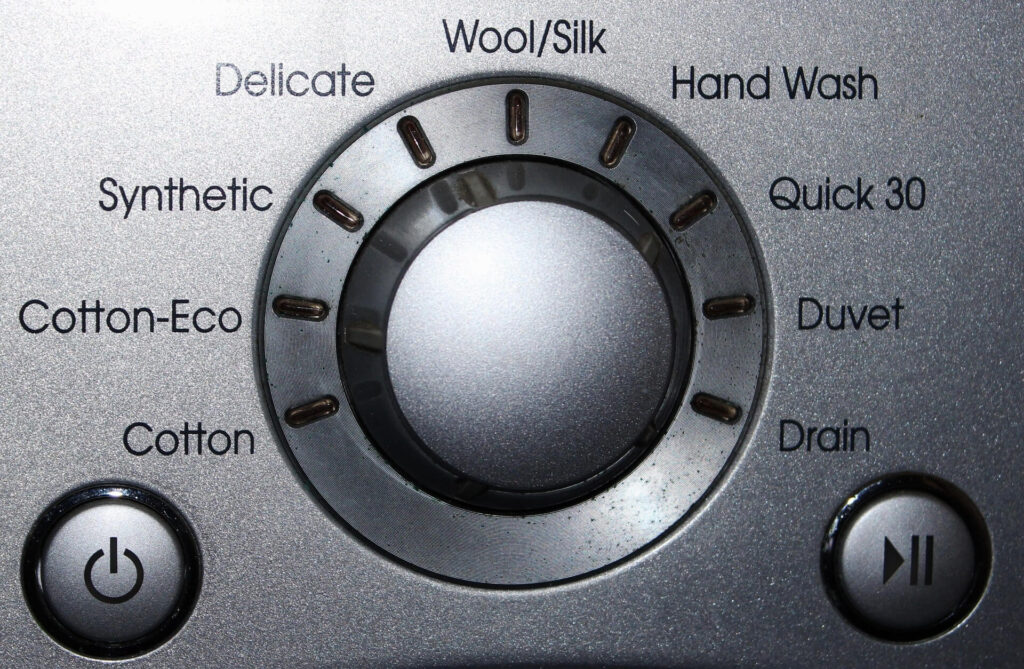
Energy Efficiency
Energy efficiency is crucial not only for the environment but also for your utility bills. Look for washing machines with the ENERGY STAR label, which indicates they meet strict energy efficiency guidelines.
Noise Level
If your washing machine will be placed near living areas or bedrooms, noise level is an important consideration. Look for models with noise reduction features or those specifically designed to operate quietly.
Smart Features
Many modern washing machines come with smart features that can make laundry day easier and more convenient:
- Wi-Fi Connectivity: Allows you to control and monitor your washer remotely using a smartphone app.
- Voice Control: Integrates with smart home systems like Amazon Alexa or Google Assistant.
- Automatic Detergent Dispenser: Dispenses the right amount of detergent for each load, reducing waste and ensuring optimal cleaning.
- Load Sensing: Automatically adjusts water and energy usage based on the size of the load.
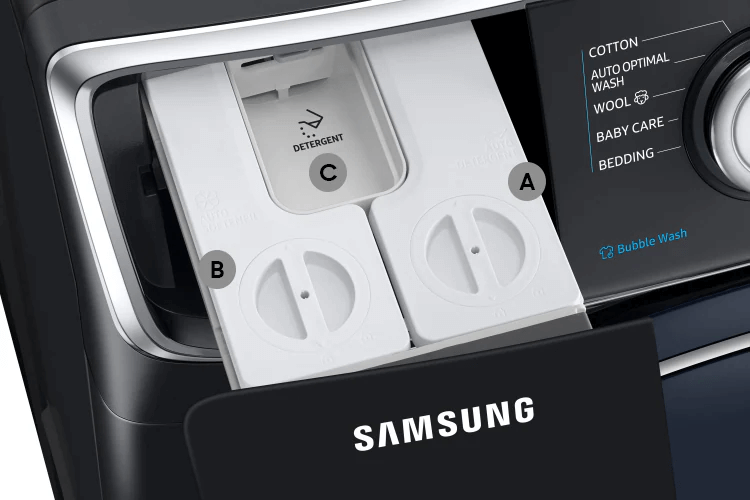
3. Determining Your Needs
Before making a purchase, it’s important to assess your specific needs and preferences. Here are some questions to ask yourself:
How Much Laundry Do You Do?
If you have a large family or do multiple loads of laundry each week, a washing machine with a larger capacity and faster spin speed will be beneficial. If you live alone or with a partner, a smaller capacity machine will suffice.
What Types of Fabrics Do You Wash?
Consider the types of fabrics you frequently wash. If you have a lot of delicate or woolen items, look for a machine with specialized wash programs. If you often wash heavily soiled clothes, a machine with a heavy-duty cycle is essential.
Do You Have Any Space Constraints?
Measure the space where you plan to place your washing machine. Ensure there’s enough room for the machine, and consider whether you need a stackable unit or a washer dryer combo to save space.
What’s Your Budget?
Washing machines come in a wide range of prices. Set a budget before you start shopping and look for models that offer the best features and performance within your price range. Remember, while a more expensive machine may have a higher upfront cost, it could save you money in the long run through energy efficiency and durability.
4. Popular Washing Machine Brands
Several brands are known for producing reliable and high-quality washing machines. Here are a few to consider:
Hitachi
Hitachi washing machines are known for their reliability and advanced technology. They offer a range of models with features like inverter technology, self-cleaning capabilities, and energy efficiency.
Samsung
Samsung is another popular brand, offering washing machines with sleek designs and advanced features. Their models often include SmartThings integration, powerful cleaning performance, and a variety of wash cycles.
LG
LG washing machines are known for their innovative features, energy efficiency, and durability. They offer both top-load and front-load models, with a range of smart features like Wi-Fi connectivity and steam cleaning.
Toshiba
Toshiba washing machines are renowned for their high quality, energy efficiency, and quiet operation. They offer a variety of models with features like anti-vibration technology and automatic load sensing.
Electrolux
Electrolux washing machines are built to last, with robust construction and powerful cleaning capabilities. They offer both top-load and front-load models, with features like high spin speeds and steam cleaning.
5. Maintenance and Care
Once you’ve chosen the perfect washing machine, it’s important to maintain it properly to ensure it lasts for years to come. Here are some tips for keeping your washer in top condition:
Regular Cleaning
- Exterior: Wipe down the exterior of your washing machine with a damp cloth to remove dust and grime.
- Drum: Run a cleaning cycle with an empty drum using a washing machine cleaner or a mixture of vinegar and baking soda to remove residue and prevent odors.
- Detergent Drawer: Remove and clean the detergent drawer regularly to prevent buildup.
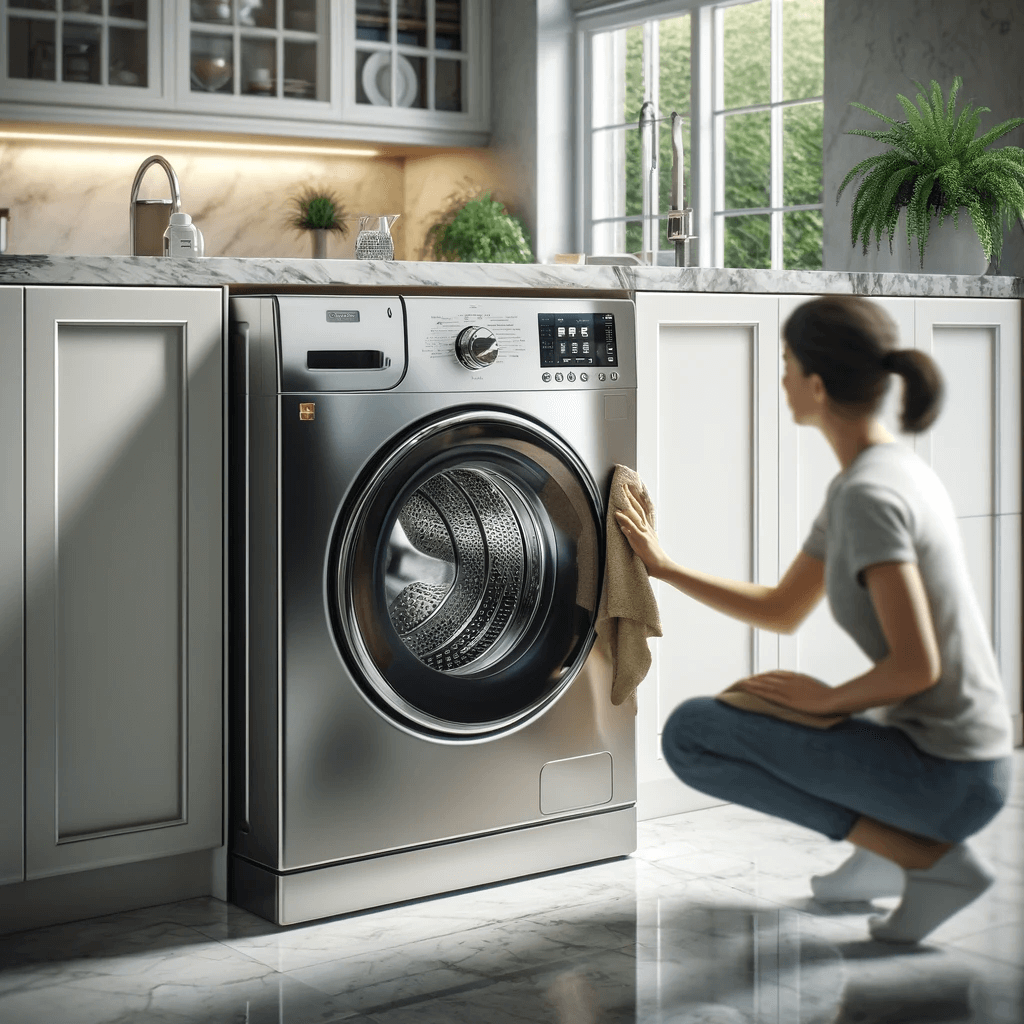
Preventing Mold and Mildew
- Leave the Door Open: After each wash, leave the door open to allow the drum to dry and prevent mold and mildew growth.
- Clean the Door Seal: Wipe down the door seal regularly to remove any moisture and detergent residue.
Checking Hoses and Filters
- Hoses: Inspect the hoses for any signs of wear or leaks and replace them if necessary.
- Lint Filter: Clean the lint filter regularly to ensure optimal performance and prevent clogs.
Using the Right Detergent
- High-Efficiency (HE) Detergent: If you have a high-efficiency washing machine, use HE detergent to prevent excessive suds and ensure effective cleaning.
- Dosage: Follow the manufacturer’s guidelines for detergent dosage to avoid overuse, which can lead to residue buildup and poor cleaning performance.
Tips:
Sometimes, even the best washing machines can act up. When yours does, don’t panic—there are a few simple steps you can take to troubleshoot common issues before calling a professional. We have listed the 5 common issues for you in our blog.
6. Conclusion
Buying the right washing machine for your home doesn’t have to be a stressful experience. By understanding the different types of washing machines, key features, and your specific needs, you can make an informed decision and find a machine that will serve you well for years to come. Remember to consider factors like capacity, spin speed, energy efficiency, and smart features when making your choice. Don’t forget to factor in your budget and space constraints as well.
With brands like Hitachi, Samsung, LG, Toshiba, and Electrolux offering a wide range of options, you’re sure to find a washing machine that meets your needs and fits your lifestyle. And once you have your new washer, proper maintenance and care will ensure it remains in top condition, providing you with clean and fresh laundry day after day.
Happy washing machine shopping!
You May Also Like
- How to Choose the Right Refrigerator Size for Your Home?
- Why Is My Washing Machine Not Draining Water?
- Why You Should Deep Clean Your Washer Dryer Once a Year?
- Inverter or Non-Inverter Air Conditioner: Which To Buy?
- What is the Right Air Conditioner Horsepower for Your Home?
- 5 Tips to Buy an Air Conditioner in Malaysia

